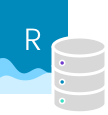The Internet & Jurisdiction Policy Network has released a Report “We Need to Talk About Data: Framing the Debate Around the Free Flow of Data and Data Sovereignty”. The Report presents concerns and perspectives around these polarizing policy concepts and offers recommendations on how to move forward. To unpack the key messages and explore the next steps I&JPN spoke to the Report’s contributors to ask how I&JPN can foster a collaborative discussion on how to organize our common Datasphere.

Why do we need to talk about data?
Data is behind literally every technology of the Fourth Industrial Revolution. We can say it's really important for innovation, which it is, but it is also much more foundational and fundamental than that. Every company is now potentially a data company and every person is a data subject. So what we're really looking at when we talk about data flows is how data about companies and people moves from entity to entity and country to country. It affects everyone. It's a big deal.
What is the most important key message from the I&JPN Report?
Trust is something that is earned, and trust is something that is fragile. When we're looking at a topic, like data flows, particularly when it comes to the movement of data from country to country, we really are getting right into that area of trust or mistrust, as the case may be. We create trust by finding common ground and commonality. I think to this point, I&JPN has been particularly mindful, to look at how important it is to bring in all types of stakeholders into discussions on data. Multistakeholder cooperation really is the only way to create and maintain trust in data flows.
When considering data policy approaches, why should we be thinking about our “common Datasphere”?
It is so important that data is no longer looked at as this discrete vertical issue around technology policy or trade policy or an issue that concerns only data protection and privacy. Data policy really is as foundational and complex as something like economic and financial policy. And when you think about how sophisticated the policy environment is around economic and financial policy, you start to chip away the edge of the iceberg of how much is left to discuss in the world of data, and how important it is to get dialogue moving on this topic. The concept of the Datasphere starts to capture the ubiquitous nature of what we are talking about and how broad and far reaching it is.
How can we foster a collaborative discussion moving forward?
Multistakeholder cooperation is the only way forward. We should be considering how can we as organizations, businesses, governments, academic experts, civil society organizations, NGOs, all put our heads together and look at data issues in a lateral and holistic manner. At the World Economic Forum, the global platform for public-private cooperation, we live and breathe this approach and our work around data policy and governance seeks to bring together such multistakeholder communities, such as in our Roadmap on Cross-Border Data Flows. It is however essential to do this in a human-centric manner, because at the end of the day this is a topic with the potential to affect every person on the planet. We can only empower business and policy leaders to make people-first decisions when they are equipped with a holistic and systemic understanding and knowledge of this landscape.


